 Your new post is loading...
 Your new post is loading...

|
Scooped by
Gust MEES
|
Reverse engineering, also called back engineering, is the process by which a man-made object is deconstructed to reveal its designs, architecture, or to extract knowledge from the object; similar to scientific research, the only difference being that scientific research is about a natural phenomenon.

|
Scooped by
Gust MEES
|
Eine Sitte ist eine durch moralische Werte, Regeln oder soziale Normen bedingte, in einer bestimmten Gruppe oder Gemeinschaft entstandene und für den Einzelnen verbindlich geltende Verhaltensnorm (vgl. Ferdinand Tönnies, Die Sitte, 1908). Meist beruht sie auf Tradition und Gewohnheit (= „Usus"). Eine Sitte ist jedoch mehr als Gewohnheit; denn es gibt auch als schlecht bewertete Gewohnheiten (manchmal Unsitte genannt).

|
Scooped by
Gust MEES
|
Das Sankt-Florian-Prinzip (österreichisch: Floriani-Prinzip) oder die Sankt-Florian-Politik bezeichnet Verhaltensweisen, potentielle Bedrohungen oder Gefahrenlagen nicht zu lösen, sondern auf andere zu verschieben. Die englischsprachige Entsprechung ist , ein Akronym für „Not in my backyard". Früher war es üblich, die Hilfe des Heiligen Florian anzurufen, der als Schutzpatron für die Abwendung von Feuer und Dürre zuständig ist.

|
Scooped by
Gust MEES
|
There are two theories of intelligence, referred to simply as mindsets, that students can have about their intellectual abilities, although no one has purely one or the other, she said. Individuals with more of a fixed mindset believe that their intellectual abilities are simply fixed. They tend to approach learning with the goal of looking smart, and they often shy away from challenges because they believe that having to work hard at something or making mistakes means they don’t have high ability. Those with more of a growth mindset, on the other hand, believe that abilities can be developed—they are more likely to see effort as something that propels learning and to see setbacks as opportunities to build new skills.
These divergent mindsets are also reflected in how individuals process mistakes on a neurological level. In a study of 25 undergraduate students, Jason S. Moser (Michigan State University) and colleagues tasked participants with rapidly identifying the center letter in a string of similar text (e.g. “M” vs. “N”) while monitoring activity of the anterior cingulate cortex (ACC) and related brain areas associated with cognitive control of behavior, via electroencephalography. The students also completed a scale designed to measure fixed and growth mindsets.
Over the course of 480 trials, participants with growth mindsets demonstrated greater error positivity and greater electrical activity in the ACC and related brain regions associated with attending to mistakes compared with those with fixed mindsets. This boost in Pe was also associated with greater posterror accuracy, suggesting that these participants were processing errors more deeply, allowing them to make corrections immediately. Learn more / En savoir plus / Mehr erfahren: http://www.scoop.it/t/21st-century-learning-and-teaching/?&tag=carol+dweck http://www.scoop.it/t/21st-century-learning-and-teaching/?&tag=Growth+Mindset

|
Scooped by
Gust MEES
|
The word decadence, which at first meant simply "decline" in an abstract sense, is now most often used to refer to a perceived decay in standards, morals, dignity, religious faith, honor, discipline, or skill at governing among the members of the elite of a very large social structure, such as an empire or nation state.
The word decadence, which at first meant simply "decline" in an abstract sense, is now most often used to refer to a perceived decay in standards, morals, dignity, religious faith, honor, discipline, or skill at governing among the members of the elite of a very large social structure, such as an empire or nation state. By extension, it may refer to a decline in art, literature, science, technology, and work ethics, or (very loosely) to self-indulgent behavior.
Usage of the term sometimes implies moral censure, or an acceptance of the idea, met with throughout the world since ancient times, that such declines are objectively observable and that they inevitably precede the destruction of the society in question; for this reason, modern historians use it with caution. The word originated in Medieval Latin (dēcadentia), appeared in 16th-century French, and entered English soon afterwards. It bore the neutral meaning of decay, decrease, or decline until the late 19th century, when the influence of new theories of social degeneration contributed to its modern meaning.
In literature, the Decadent movement—late nineteenth century fin de siècle writers who were associated with Symbolism or the Aesthetic movement—was first given its name by hostile critics. Later it was triumphantly adopted by some of the writers themselves. The Decadents praised artifice over nature and sophistication over simplicity, defying contemporary discourses of decline by embracing subjects and styles that their critics considered morbid and over-refined. Some of these writers were influenced by the tradition of the Gothic novel and by the poetry and fiction of Edgar Allan Poe. Learn more / En savoir plus / Mehr erfahren: https://www.scoop.it/t/21st-century-learning-and-teaching/?&tag=Frank+SONNENBERG http://www.scoop.it/t/21st-century-learning-and-teaching/?&tag=Character http://www.scoop.it/t/21st-century-learning-and-teaching/?q=ethics https://www.scoop.it/t/21st-century-learning-and-teaching/?tag=Values http://www.scoop.it/t/21st-century-learning-and-teaching/?tag=Growth+Mindset

|
Scooped by
Gust MEES
|
In Carol Dweck’s famous study on growth mindset, Dweck taught high school students about brain plasticity and about how the characteristics of intelligence are not fixed. The idea was to convince students that they had control over improving their academic ability. Years later, these students scored higher on standardized tests.
It’s tempting to think of the Dweck study as a near instant fix. You teach students, or yourself, the details of growth mindset. This takes about an hour. And then afterward your performance magically improves.
Although Dweck’s study has been supported by future studies, for example this one, I suspect there is a crucial missing element to the story. What behaviors did the students change after the lesson? Knowing this is the key to understanding how you can improve your own life.
Learn more / En savoir plus / Mehr erfahren: http://www.scoop.it/t/21st-century-learning-and-teaching/?&tag=carol+dweck http://www.scoop.it/t/21st-century-learning-and-teaching/?&tag=Growth+Mindset

|
Scooped by
Gust MEES
|
“But we’ve always done it that way” is the comfortable, regular, and normal barrier to enacting change. And, our reluctance to change — in our personal and our professional lives — not only limits progress, it also prizes old ways of doing and being that, by design, were exclusive. When we rely on the ways we have always done it, likely we are also relying on our past efforts, and history on many fronts tells us that our past efforts weren’t the most inclusive or equitable. Learn more / En savoir plus / Mehr erfahren: https://gustmees.wordpress.com/2017/06/02/still-following-we-have-always-done-it-this-way-or-already-on-growth-mindset/

|
Scooped by
Gust MEES
|

|
Scooped by
Gust MEES
|
What would you say are a few of the biggest myths about growth mindset?
OK, myth No.1 is the myth that it’s all about effort, and that you instil it by praising effort. Effort is one factor that leads to learning. So the ultimate value is growth, progress, learning. And effort is one thing that leads there but there are many other things – strategies, using resources, getting advice, guidance and mentorship, and when people leave that out and just praise effort, it’s not transmitting a growth mindset. Adults have nagged children for centuries to try harder. That’s not a growth mindset, it’s an adult nagging a child to try harder!
Also, we find that when teachers think it’s just about effort and praising effort they may praise effort that isn’t even there, or that’s not effective. So if a child tries hard at something and you say ‘great job, you tried hard’, but they didn’t make progress, they didn’t advance, you’re actually conveying a fixed mindset because you’re saying ‘great effort, I didn’t really expect you to do that, and I don’t expect you to do that, so I’m trying to make you feel good about not doing it’. So we need people to understand that it’s appreciating a variety of process variables that lead to learning.
The second myth is that you can teach students a lesson on growth mindset and put a poster up in the front of the room, and that’s that, that they will have a growth mindset from then on. And we know if the teacher doesn’t then embody a growth mindset, if teachers don’t embody growth mindsets in their teaching practices, in the way that they give feedback when the child is stuck, and the way they present a new unit, in the way that they give opportunities for revision and growth of understanding – if they don’t embody that growth mindset, they are not teaching it. And in fact, if their behaviour contradicts the poster at the front of the room, then maybe they’re doing a disservice. Learn more / En savoir plus / Mehr erfahren: http://www.scoop.it/t/21st-century-learning-and-teaching/?&tag=carol+dweck http://www.scoop.it/t/21st-century-learning-and-teaching/?&tag=Growth+Mindset
It's important to recognize that a growth mindset is an overall paradigm for personal development rather than a pedagogical tool for measuring academic accomplishment. 5 Growth Mindset PracticesIn their groundbreaking book, Professional Learning Communities at Work, Richard DuFour and Robert Eaker say it clearly when pointing out the issue that comes about when change initiatives are considered "a task to complete rather than an ongoing process." If we really want to improve our schools, our work, and the education of our students, we can do so by adopting a new mindset -- for everyone -- that would include: - Being humble enough to accept that there are things about ourselves and our practices that can improve
- Becoming part of professional teams that value constructive critique instead of criticism
- Treating setbacks as formative struggles within the learning process instead of summative failures
- Realizing the restrictive role that timelines can play in reaching high standards, and using foundational philosophies such as Universal Design for Learning (UDL) to map systems so that everyone's growth is supported
- Create flexible grouping at all times so that nobody's trapped in any one course level or particular type of work.
Learn more / En savoir plus / Mehr erfahren: http://www.scoop.it/t/21st-century-learning-and-teaching/?&tag=Growth+Mindset
Via Ana Cristina Pratas, Miloš Bajčetić

|
Scooped by
Gust MEES
|
An idea that is beginning to gain a lot of favour in educational circles at the moment is the notion of fixed versus growth mindsets, and how they might relate to students and learning. Based on the work of Stanford University psychologist, Carol Dweck, the idea of mindset is related to our understanding of where ability comes from. It has recently been seized upon by educators as a tool to explore our knowledge of student achievement, and ways that such achievement might be improved. Learn more / En savoir plus / Mehr erfahren: http://www.scoop.it/t/21st-century-learning-and-teaching/?&tag=Growth+Mindset

|
Scooped by
Gust MEES
|
Pushing our students to adopt a growth mindset is an easy call. Adopting one ourselves is harder. Having a growth mindset doesn’t just mean learning about the theory and leaving it at that. It’s a constant process. Sometimes it’s difficult, often it’s a little painful, but it’s always worth the effort. Six Tips for Instilling a Growth Mindset in YourselfFocus on the hard stuff Try innovative solutions, and if they don’t work, try some more. Seek feedback wherever you can. Reflect at the end of every day, especially the bad ones. Notice the areas where you have a fixed mindset. There’s a catch to learning a lot about growth mindset. Once we learn just how much of our lack of growth is a product of our attitude, it’s not so easy to write things off as impossible anymore. Learn more / En savoir plus / Mehr erfahren: http://www.scoop.it/t/21st-century-learning-and-teaching/?tag=Growth+Mindset

|
Scooped by
Gust MEES
|
|

|
Scooped by
Gust MEES
|
Dieser Artikel oder Abschnitt bedarf einer Überarbeitung. Näheres sollte auf der Bitte hilf mit, ihn zu Diskussionsseite angegeben sein. verbessern, und entferne anschließend diese Markierung. In diesem Artikel oder Abschnitt fehlen noch folgende wichtige Informationen: Es fehlt die Begriffsgeschichte. Die fängt mit den alten Griechen und Augustinus („caritas") an und führt über einen Riesenbogen bis in die Gegenwart.

|
Scooped by
Gust MEES
|
Nimby steht als englischsprachiges Akronym für Not in my backyard („Nicht in meinem Hinterhof", „Nicht in meinem Bereich"). Der entsprechende deutsche Ausdruck lautet Sankt-Florians-Prinzip. Es steht für eine ethische und politische Position, die darauf bedacht ist, Probleme nicht im unmittelbaren Umfeld zu ertragen.

|
Scooped by
Gust MEES
|

|
Scooped by
Gust MEES
|
Der Duden nennt unabhängig von der psychologischen Perspektive viele sprachliche Synonyme („Eigenliebe, Eigennutz, Eigensucht, Ichbezogenheit, Narzissmus, Selbstbesessenheit, Selbstbezogenheit, Selbstliebe, Selbstsucht, Selbstverliebtheit; (gehoben) Ichsucht; (bildungssprachlich) Egotismus, Egozentrik; (Psychologie) Autophilie"). Egoismen ( Plural) sollen Handlungsweisen sein, bei denen einzig der Handelnde selbst die Handlungs maxime bestimmt.

|
Scooped by
Gust MEES
|
Dekadenz (von lateinisch „fallen", „sinken", französisch „Niedergang", „Verfall", über mittellateinisch decadentia) ist ein ursprünglich geschichtsphilosophischer Begriff, mit dem Veränderungen in Gesellschaften und Kulturen als Verfall, Niedergang beziehungsweise Verkommenheit gedeutet und kritisiert wurden. Er wurde in der französischen Historiographie zuerst für den Niedergang Roms gezielt verwendet. Die Kritik am Dekadenten emanzipiert sich vom hergebrachten religiösen Moralisieren.

|
Scooped by
Gust MEES
|
Kids do crazy things, but we expect more from grown-ups, don’t we? Unfortunately, that’s not always the case. Folks scream obscenities at ballgames, bully people on social media, and treat others with total disrespect. If you think this behavior is rude, insensitive, and tasteless, you’re right. But why is it so prevalent? The truth is, some people behave this way for personal gain; some folks don’t know better; and others know they’ll get away with it — because they have in the past. Some grown-ups never grow up.
While some indiscretions were once considered outlandish, we’ve become desensitized to these actions. It’s troubling that some of this behavior could have been avoided, but too many of us didn’t speak up. Instead, we closed our eyes to the poor behavior and waited for others to make the first move. The consequence is that wrongs committed by enough people become the norm over time. We have no one to blame except ourselves.
As leaders, role models, and parents, we must utilize every opportunity to reinforce the values that we hold dear.
What Values Do You Cherish?
Are polite manners a thing of the past? Should people honor their word? Is it Pollyanna to expect people to do what’s right? I think not! But if we don’t promote good values, don’t be surprised when bad ones become the norm. “How do we improve the situation?” you ask.
First, we must modify our criterion of excellence. It’s not what you have but who you are that counts. Moral character matters! Learn more / En savoir plus / Mehr erfahren: https://www.scoop.it/t/21st-century-learning-and-teaching/?&tag=Frank+SONNENBERG http://www.scoop.it/t/21st-century-learning-and-teaching/?&tag=Character http://www.scoop.it/t/21st-century-learning-and-teaching/?q=ethics https://www.scoop.it/t/21st-century-learning-and-teaching/?tag=Values http://www.scoop.it/t/21st-century-learning-and-teaching/?tag=Growth+Mindset
August , 2017
In her celebrated book ‘Mindset: The New Psychology of Success’, Stanford university psychologist Carol S. Dweck makes a strong case backed up with scientific evidence for the power of mindset in shaping one’s success or failure in almost every facet of our life.Those with a fixed mindset mentality tend to be limited in their learning scope believing that their inner traits and abilities are biologically determined. On the other hand, people with a growth mindset embrace change and tend to learn more from life experiences because for them concepts such as skills, abilities and competencies are not fixated and can be developed through a process of error and trial.
In today’s post, we are sharing with you this handy infographic we created based on Marcus Guido’s post ’10 Ways Teachers Can Instill a Growth Mindset in Students’. Guido walks you through the different strategies you can use with your students to cultivate a growth mindset in your class and ultimately enhance students learning. Read his post to learn more about each of the strategies featured here.
The visual below is also available in PDF format from this link. Learn more / En savoir plus / Mehr erfahren: https://gustmees.wordpress.com/?s=growth+mindset https://gustmees.wordpress.com/?s=practice
Via Educatorstechnology

|
Scooped by
Gust MEES
|
STILL following "WE have ALWAYS done it this way" OR ALREADY on Growth-Mindset!? Well, when analyzing posts from EDUcators, TEACHers from around the world on Social-Media twitter since 2009 already, I must admit (excuse-me please...) that MOST of THEM are still on a Fixed-Mindset! Very rare are those who have already adapted their… Learn more / En savoir plus / Mehr erfahren: https://gustmees.wordpress.com/?s=growth+mindset https://gustmees.wordpress.com/?s=practice https://www.scoop.it/t/21st-century-learning-and-teaching/?&tag=Growth+Mindset

|
Scooped by
Gust MEES
|
Bigger issues: #1. Unfairness is necessary. Giving second chances, for example, isn’t fair to those who perform on schedule and within expectation. But, not giving second chances is cruel. #2. Fairness is merciless. Mercy is not getting what you deserve. In other words, mercy isn’t fair. #3. Equal opportunity must include reward or lack of reward. Those who seize opportunities earn reward. Those who don’t seize opportunities don’t earn reward. It’s important to note that it’s not necessary to punish those who don’t seize opportunity. Rewarding teams always includes some unfairness.
#4. Fairness – treating everyone the same – de-motivates high achievers and rewards low performers. #5. Fairness, when it means everyone is treated the same, promotes inaction. If you can’t be do something for everyone then you can’t do it for anyone. The result is you don’t do much. Learn more / En savoir plus / Mehr erfahren: http://www.scoop.it/t/21st-century-learning-and-teaching/?&tag=Counterfeit+Leadership http://www.scoop.it/t/21st-century-learning-and-teaching/?&tag=Growth+Mindset

|
Scooped by
Gust MEES
|
In science, we build a firm foundation and then we keep renovating the house. We find interesting results, we are fascinated by them, we don’t always trust them, so we go back and replicate them. We also challenge them by asking, where will this not work? When does the effect go away? How can we use better methods to test our theories?
As part of this process, scientists ask each other questions. Recently, other scientists asked us some questions about three of our papers. We took this very seriously, carefully considered each inquiry, delved into the studies again (in some cases reanalyzing the data), and prepared three documents, each detailing our process and our findings (here, here, and here). In each case, we showed that the conclusions reached in the paper were sound. But, as with anything that helps make science better, we were grateful for the questions because they pointed out areas for improvement or clarity, and because we believe in open science.
It is important however to consider these questions in light of a large body of work. The growth mindset story does not rest on a handful of isolated studies. Research in this area has been ongoing for 30 years and the field has amassed a large body of work. A meta-analysis published in 2013 found 113 studies conducted by many authors and concluded that mindsets are a significant factor in people’s self-regulation toward goals.
Meta-analyses are helpful, but not the final word. Government data collected at a country level—all the 10th grade students in the country of Chile (over 160,000)—showed that holding a growth mindset predicted academic achievement at every socioeconomic level. Recently, the state of California, collecting data from over 100,000 middle schoolers, found that students’ mindsets were a good predictor of their test scores. And this doesn’t include many experimental studies that have carefully oriented children (or adults) toward different mindsets and found effects on outcomes. It is highly unlikely that mindset is a phantom phenomenon. Learn more / En savoir plus / Mehr erfahren: http://www.scoop.it/t/21st-century-learning-and-teaching/?tag=carol+dweck

|
Scooped by
Gust MEES
|
False growth mindset is saying you have growth mindset when you don’t really have it or you don’t really understand [what it is]. It’s also false in the sense that nobody has a growth mindset in everything all the time. Everyone is a mixture of fixed and growth mindsets. You could have a predominant growth mindset in an area but there can still be things that trigger you into a fixed mindset trait. Something really challenging and outside your comfort zone can trigger it, or, if you encounter someone who is much better than you at something you pride yourself on, you can think “Oh, that person has ability, not me.” So I think we all, students and adults, have to look for our fixed-mindset triggers and understand when we are falling into that mindset.
I think a lot of what happened [with false growth mindset among educators] is that instead of taking this long and difficult journey, where you work on understanding your triggers, working with them, and over time being able to stay in a growth mindset more and more, many educators just said, “Oh yeah, I have a growth mindset” because either they know it’s the right mindset to have or they understood it in a way that made it seem easy. Learn more / En savoir plus / Mehr erfahren: http://www.scoop.it/t/21st-century-learning-and-teaching/?tag=Growth+Mindset https://gustmees.wordpress.com/2016/11/14/pssst-the-most-important-in-education-understanding/ https://gustmees.wordpress.com/2016/11/01/getting-ready-for-modern-education-first-try-to-understand-what-it-is/
|




 Your new post is loading...
Your new post is loading...












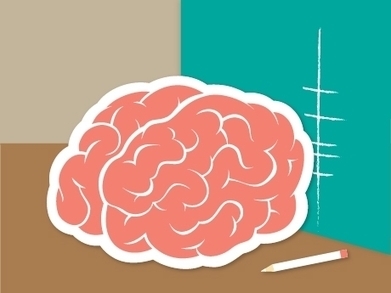


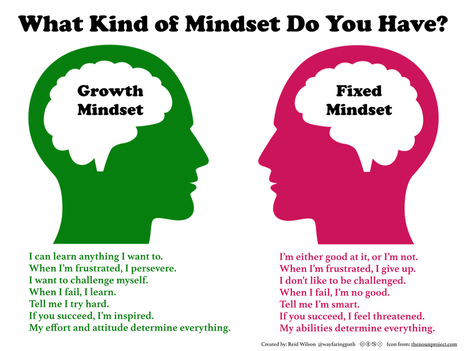













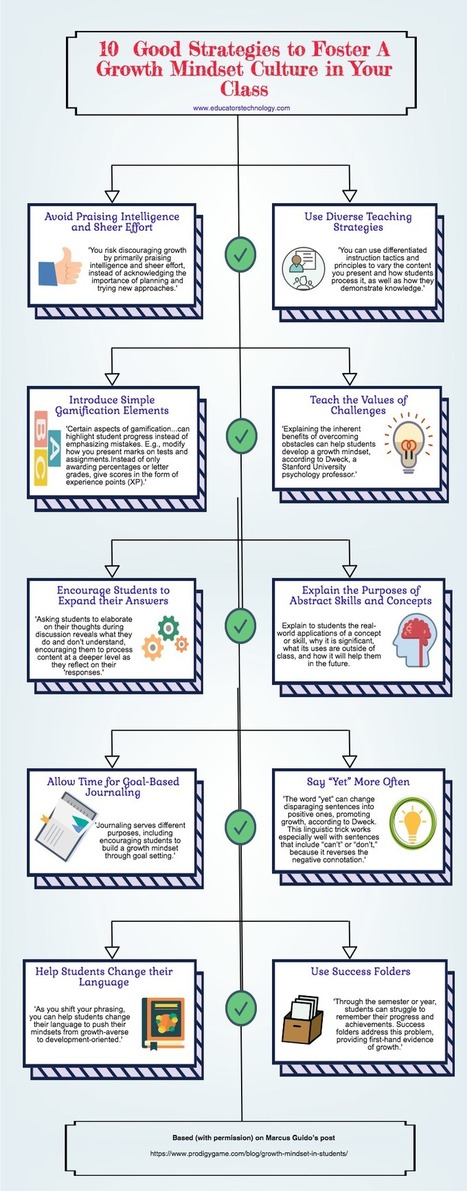

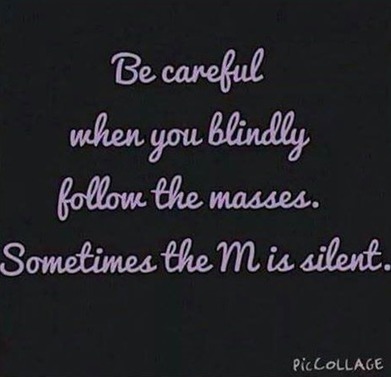

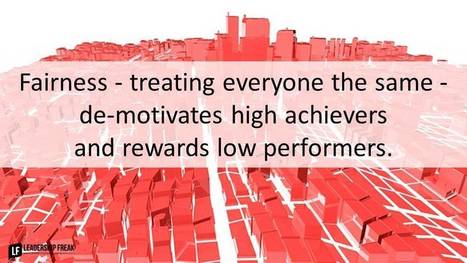


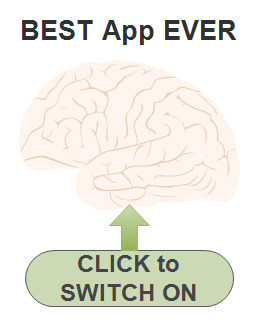





The process by which a man-made object is deconstructed to reveal its designs, architecture, or to extract knowledge from the object; similar to scientific research, the only difference being that scientific research is about a natural phenomenon. content...
Learn more / En savoir plus / Mehr erfahren:
https://www.scoop.it/t/21st-century-learning-and-teaching/?&tag=Frank+SONNENBERG
http://www.scoop.it/t/21st-century-learning-and-teaching/?&tag=Character
http://www.scoop.it/t/21st-century-learning-and-teaching/?q=ethics
https://www.scoop.it/t/21st-century-learning-and-teaching/?tag=Values
http://www.scoop.it/t/21st-century-learning-and-teaching/?tag=Growth+Mindset